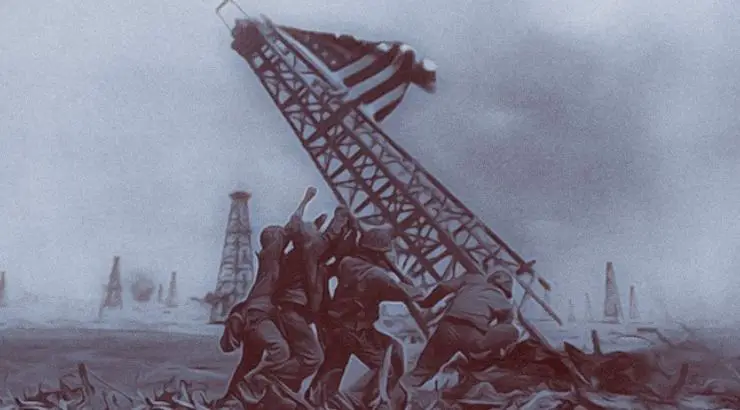News
Majority of US Veterans Say Wars in Iraq, Afghanistan “Not Worth Fighting”: Study
64% of 1,284 polled veterans said the Iraq war “was not worth the fighting” and 58% also concluded the same regarding the Afghanistan war.

(TMU) — A majority of veterans taking part in a recent research study say that the cost and burden of the U.S.-led invasions of Iraq and Afghanistan outweigh any success or progress made in either conflict, Military.com reports.
The Pew Research Center report, published last Wednesday, states that 64 percent of 1,284 polled veterans said the Iraq war “was not worth the fighting” and 58 percent also concluded the same regarding the Afghanistan war.
“Veterans who served in either Iraq or Afghanistan are no more supportive of those wars than those who did not serve in these wars,” Pew researchers Ruth Igielnik and Kim Parker stated. “And views do not differ based on rank or combat experience.”
The polls appear to mirror a civilian poll which found that 60 percent of Americans felt the same about the Iraq war with another 59 percent of the public agreeing on Afghanistan.
“Our veterans have borne the brunt of these policy mistakes and it is not surprising they would be wary of more endless war abroad while also not looking kindly on our current wars,” says Nate Anderson, executive director of the conservative Concerned Veterans for America organization, in a statement, according to Mother Jones.
The survey also shows a distaste for the war in Syria with 55 percent of veterans disapproving of the Syria campaign. Likewise, only 36 percent of the general public believed US efforts in Syria to have been worthwhile.
The study found that Republican and Republican-leaning veterans “are much more likely than veterans who identify with or lean toward the Democratic Party to say the wars in Iraq and Afghanistan were worth fighting: 45% of Republican veterans vs. 15% of Democratic veterans say the war in Iraq was worth fighting, while 46% of Republican veterans and 26% of Democratic veterans say the same about Afghanistan.”
The U.S. government is undoubtedly aware of the public and military veteran dissatisfaction with U.S. wars in the Middle East. It could explain why Donald Trump openly displays a desire to bring troops home from various ventures in the Middle East, and may also explain the current administration’s calls for U.S. troops in Syria to be supplanted by German troops.
Surprisingly, a majority of vets (57 percent) approve of the way the president is handling his responsibilities as commander-in-chief of the world’s most advanced military. Trump’s stated aim of bringing the troops home may have contributed to this sentiment.
The timing of the recent survey is also fortunate, given there are many signs that the U.S. could once again launch another reckless war with a Middle Eastern country—Iran.
According to a poll conducted by Concerned Veterans for America (CVA) in April of this year, only 6 percent of veterans and 13 percent of military households support the U.S. being engaged in conflicts around the world. This was further confirmed by a CVA and VoteVets poll from a month ago that seemed to suggest that those polled strongly disapproved of a military confrontation with Iran.
A Military Times poll published in October last year found that nearly half of all current military troops believe the U.S. will be drawn into a major war soon. A similar poll conducted a year earlier revealed only 5 percent had felt the same way approximately twelve months prior.
When the Iraq war began in March 2003, more than seven-in-ten Americans said using force was the right decision. This number has drastically reduced over the years with 46 percent of the public saying it was the wrong decision around 2011.
The problem facing us seems to be that there are plenty of military veterans who are given a voice in the U.S. foreign policy decision-making and in the media, but they are never the veterans who matter most. Unfortunately, veterans have been speaking out against needless war for years—they just haven’t been listened to. Harry Patch, who was at one time the world’s last surviving World War I combat vet, once famously told former British Prime Minister Tony Blair that “war is organized murder—and nothing else.”
By Darius Shahtahmasebi | Creative Commons | TheMindUnleashed.com
Typos, corrections and/or news tips? Email us at Contact@TheMindUnleashed.com
